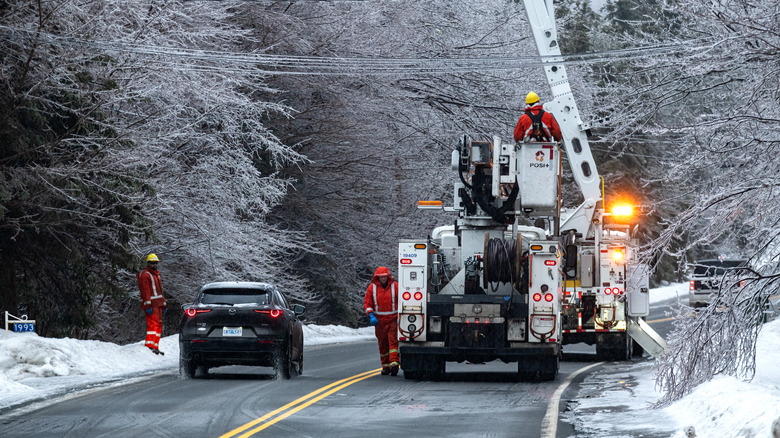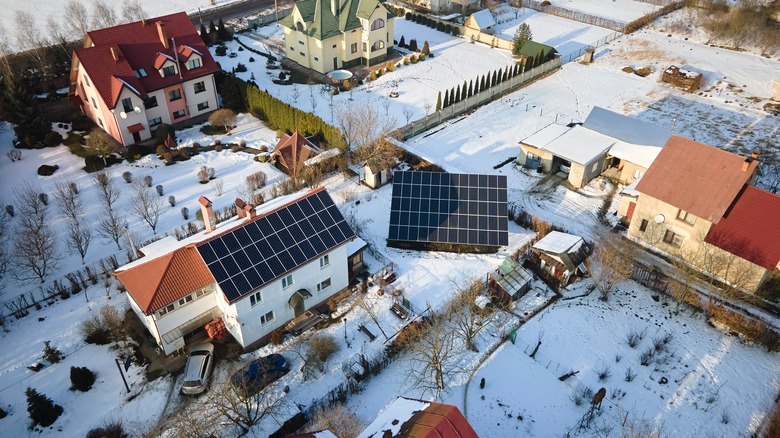How To Prepare Your Home For A Winter Storm Power Outage
You've seen the forecast: a big winter storm is approaching and power outages are likely. Your local utility says they're prepared. They've added additional crew to restore power when it goes out. But are you prepared? For your own safety, it's important to have a disaster plan and an emergency kit in place in case of an outage, but it's also important to prepare your home itself. There are four key things you can do to get ready for the power going out. Weatherproof your home, have an emergency power supply, unplug digital devices, and protect your pipes from freezing.
In a power outage during a winter storm, your first thought may be "how can I stay warm?" If you don't have a fireplace and a ready supply of wood, you're likely without a heat source. Heat pumps and, of course, electric baseboard heaters rely on electricity to heat your home. Most gas furnaces also rely on electricity to move forced air around and to run thermostats and safety features, so even if you can relight the pilot light on your gas furnace, you may not be able to keep the furnace running. That's where weatherproofing comes in. The less leaky your home is, the longer you'll be able to keep yourself warm during an outage. Weatherproofing your home involves adding insulation to your walls and attic as well as weather-stripping your windows and doors. Weatherizing your home will also save you gobs of money year round on heating and cooling bills. Many states or utilities offer financial incentives for getting an energy efficiency inspection to find where your home leaks and adding insulation where it's needed.
Have a backup power supply and protect your electronic devices and water supply
If you have a backup power supply, you may barely notice that the power has gone out. The more traditional route is the fuel-burning generator, usually running on diesel, propane, or natural gas. A standby home generator hooks directly into your main electrical panel and can start up in an outage in as little as 15 seconds. The downside of a fuel-burning generator is that it's like an expensive insurance policy: if you're lucky, you'll never need to use it. By contrast, a home battery backup system can keep your lights on and appliances running (depending on the battery size) and save you money year-round by allowing you to store electricity in the battery when utility prices are low and use that stored electricity when prices are high. Batteries also burn no fuels, so there's no annoying smells or sounds as they run. Even better, power that battery with solar panels and you're living on an electricity island.
If you're unable to keep the power on with a battery or generator, be sure to unplug any sensitive digital devices such as computers, cell phones, TVs, and even phone chargers, as their sensitive wiring can be overwhelmed when the power comes back on. And whether your power goes out or not, it's important to keep your water pipes from freezing. A burst pipe can cause major water damage, which you especially don't want to have to deal with in the middle of a power outage. You can prevent frozen pipes by insulating them with foam or rubber insulation, and in an outage, by keeping faucets slightly open so that water continually runs through your pipes rather than freezes up.

